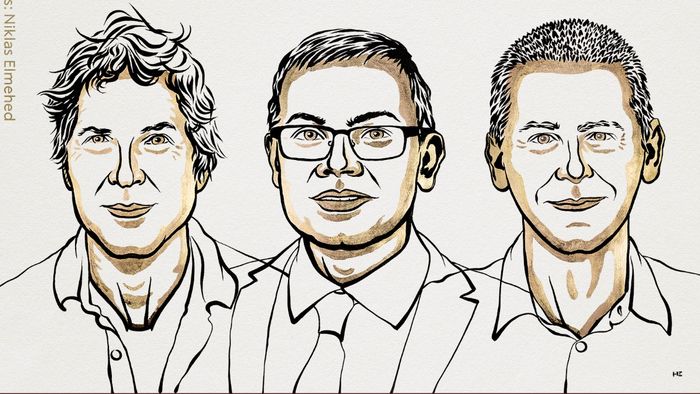Nobel Prize in Chemistry 2024 awarded for breakthroughs in protein design, prediction
The Royal Swedish Academy of Sciences awards the 2024 Nobel Prize in Chemistry for advancements in protein science. David Baker and Google's DeepMind team are recognised for pioneering work in computational protein design and structure prediction.

- Oct 09, 2024,
- Updated Oct 09, 2024, 3:57 PM IST
The Royal Swedish Academy of Sciences has announced the recipients of the 2024 Nobel Prize in Chemistry, recognising groundbreaking advancements in protein science. David Baker of the University of Washington has been awarded half the prize for his work on computational protein design. The other half is shared by Demis Hassabis and John M Jumper of Google DeepMind for their achievements in protein structure prediction.
Baker's research has opened new frontiers in protein engineering. His team has successfully created novel proteins with diverse applications, ranging from pharmaceuticals and vaccines to nanomaterials and sensors. This capability to design proteins from scratch represents a significant leap in our ability to manipulate the building blocks of life.
Hassabis and Jumper made headlines in 2020 with their AI model AlphaFold2, which effectively solved the longstanding challenge of predicting protein structures from amino acid sequences. This breakthrough has had far-reaching implications across scientific disciplines, enabling researchers to better understand complex biological processes and diseases.
The impact of these discoveries is already being felt in fields such as medicine, materials science, and environmental research. Scientists are using AlphaFold2 to investigate antibiotic resistance and explore enzymes capable of breaking down plastics, while custom-designed proteins hold promise for targeted drug delivery and advanced materials.
Heiner Linke, Chair of the Nobel Committee for Chemistry, emphasised the transformative nature of these achievements: "Both of these discoveries open up vast possibilities." The ability to predict and design protein structures is expected to accelerate scientific progress and potentially lead to breakthroughs in addressing global challenges.